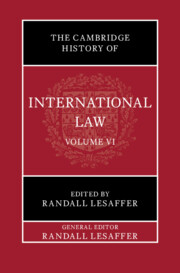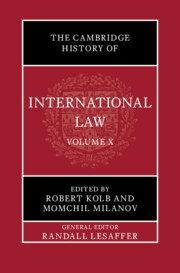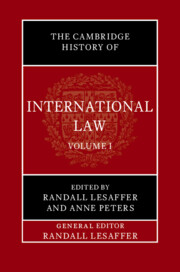3 results in The Cambridge History of International Law

The Cambridge History of International Law
- Coming soon
-
- Expected online publication date:
- May 2025
- Print publication:
- 31 March 2025
-
- Book
- Export citation

The Cambridge History of International Law
- Coming soon
-
- Expected online publication date:
- April 2025
- Print publication:
- 30 April 2025
-
- Book
- Export citation

The Cambridge History of International Law
-
- Published online:
- 06 December 2024
- Print publication:
- 21 November 2024

